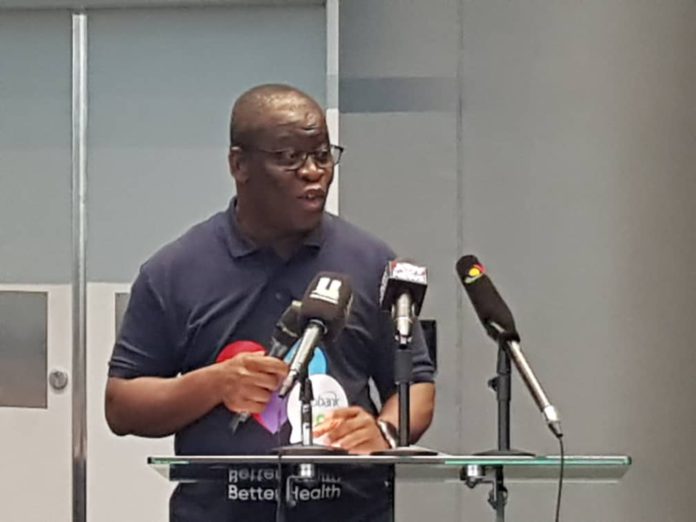Ecobank Ghana has earmarked the next three years to raise awareness about and to fight Non-Communicable Diseases (NCDs) in the country.
In line with that, the bank has set up a special account into which customers and the general public have been asked to donate into to raise money to fight the diseases, which include cancer, hypertension and diabetes mainly.
Managing Director, Dan Sackey announced this at a forum this year’s Ecobank Day in Ghana, under the theme ‘Preventing NCDs in African Communities.’
The forum brought together health experts in the NCD sector, and representatives of World Health Organization to highlight the real challenge NCDs pose and to chart a way forward in the three-year fight.
Dan Sackey noted that Ecobank Day every year, usually focus on a particular issues and deals with it, but this time round, the focus on NCDs will span the next three years.
He said the fight is being done in all 33 African countries where Ecobank operates, adding that in Ghana, the fight takes off with awareness creation in five market centers in Accra, Tema, Kumasi, Takoradi and Tamale.
According to him, Ecobank is collaborating with the Health Ministry, the NCD Alliance, WHO and medical students across the country to distribute educational materials on various market centers about NCDs prevention.
“Our main objective in 2019 is to enhance the prevention, management and control of NCDs among staff and stakeholders. The conversation will include the consequences of inactiveness or sedentary lifestyle and other lifestyle choices that are detrimental to our health,” he said.
Meanwhile, a report from WHO indicated that the main causes of NCDs are tobacco, alcohol and inactivity (lack of exercise).
The report indicated that very little is being spent on prevention of NCD, adding that if nothing is done to stem NCDs growth, by 2030 it will cost the world US$7 trillion, but fighting it between now and 2030 will cost the world US$170 billion.
Experts are therefore urging governments to increase the taxes on tobacco and alcohol to make it less attractive for businesses to invest their moneys into it.
But Head of Public Health at Korle-Bu Teaching Hospital, Dr. Philip Amoo said most NCDs are hereditary so if the disease is not in one’s family, lifestyle can hardly cause the disease to occur.
He is therefore urging Ghanaians o make it point to frequent hospitals for checkups so that any hiding NCD can be detected earlier and be prevented from rearing its ugly head.
“Very often you hear people boast about not visiting the hospital for a long – that is foolishness because if an NCD is hiding somewhere in your body, it will not be detected early and that is not good for you,” he said.
Dr. Amoo is also urging all major hospitals in the country to establish public health departments where people can walk in and do checkups instead of everyone joining a long queue of sick people at the out-patient departments just to do checkup.
Deputy Director of NCDs at Ghana Health Service, Dr EfiaCommeh bemoaned the poor budgetary allocation for NCDs, saying that very often her department depends on donor funding, which is not consistent and so their work is hampered.
According to her, in 2016 alone, over 16,000 cancer cases were detected and by 2018, the figures have reached 22,000 plus an additional 1,000 plus cases of child cancers detected.
“These are reported cases so you can imagine how many more cases are hiding and have not been reported. In spite of this huge challenge, funding for the prevention of NCDs remain very abysmal while all the money goes into fighting other disease like malaria, HIV and others,” she lamented.
Meanwhile, over the next three years, Ecobank says they hope to raise substantial funding to help boost the prevention of NCDs in Ghana and Africa as a whole.
Source: Adomonline.com

